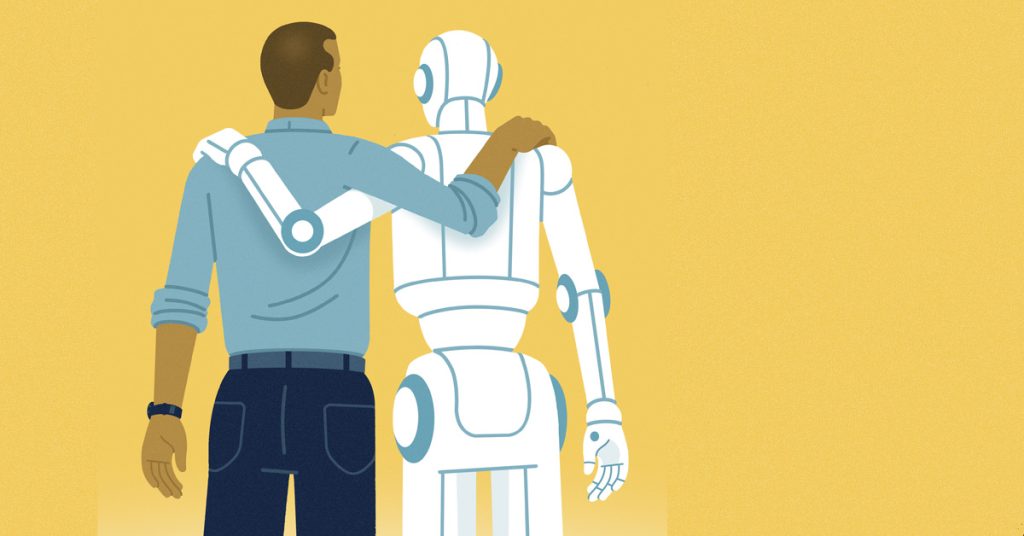AI’s Impact on Generation Z’s Future Careers: A Wake-Up Call

As a 17-year-old on the brink of college and career decisions, I find myself caught between the excitement of future possibilities and the nagging fear that everything I’m preparing for may be irrelevant in a few years. While my peers eagerly debate potential majors and career paths, I lay awake wondering if the jobs we’re training for will even exist in an AI-dominated world.
For my generation, known as Gen Z, the question is no longer just “What will I do with my life?” but rather “Will the career path I’m choosing survive the AI revolution?” And it’s not just coming – it’s already here.
I want to make it clear that I’m not against AI. In fact, I believe it holds the potential to bring enormous benefits: discovering new treatments for diseases, advancing material science, and perhaps even curing cancer. But as we speed into this technological age, we also need to confront its potential downsides. Specifically, how AI will impact jobs, especially for my generation, who are just entering the workforce.
In the past, revolutions like steam power, electricity, and computing chips took decades to transform society. Now, AI has accelerated that process, reshaping the job market in just a few years. It’s a seismic shift that many of us will have to navigate before even landing our first full-time positions.
The Changing Job Landscape
For decades, college graduates enjoyed lower unemployment rates than the general workforce. But that trend has reversed. Today, recent college graduates face nearly 6% unemployment, higher than the general 4% rate. This uptick in joblessness tracks directly with the rapid rise of generative AI. With AI now capable of performing many entry-level tasks traditionally given to fresh graduates, what does that mean for us?
Dario Amodei, CEO of Anthropic, predicts that AI will soon be able to perform 50% of white-collar entry-level jobs. This technological advancement means companies no longer need to hire new graduates to perform basic tasks – AI can do them faster and more efficiently. But if AI is filling those roles, where does that leave the rest of us?
Who Will Be Hit Hardest by AI?
Not all groups will be impacted equally. A 2023 study revealed that 80% of women in the U.S. workforce work in jobs especially vulnerable to AI automation, compared to 60% of men. Many of my classmates dreaming of careers in law, media, design, or software engineering are facing the possibility that key tasks within these fields will soon be replaced by AI.
While we may not have chosen to be part of this historic shift, it’s the reality we face. We need policies that give us time to adapt, education systems that prepare us for this new world, and employers who recognize our potential in this rapidly changing environment.
The AI Revolution: New Roles and Challenges Ahead
The World Economic Forum forecasts that by 2030, 92 million jobs will be displaced by AI, particularly in administrative, analytical, and operational roles. However, they also predict the emergence of 170 million new AI-powered roles, such as prompt engineers, AI ethics officers, and AI analysts. The catch? Most of these new jobs will require advanced degrees. According to FinalRound, 77% of new AI-related positions will demand a master’s degree, and 18% will require a doctoral degree.
This raises a crucial question: Should we be preparing for advanced degrees even before we complete our undergraduate studies? Should we be saving for additional education beyond college, just to remain competitive in the job market?
The Uncertainty of College Planning
As I watch my peers stress about SAT scores and college rankings, I wonder if we’re focusing on the wrong things. Instead of asking, “What do I want to be when I grow up?” maybe we should be asking, “What skills will still matter when AI can do most things?”
We’re at a crossroads. Gen Z is the future workforce, and decisions made now will shape whether AI becomes a job killer or a tool for prosperity. The clock is ticking, and we need responsible leaders to guide us through this uncertain future.
We’ve already endured the disruptions caused by the global pandemic, and now we face the daunting challenge of building our futures on shaky ground. But we aren’t asking for a slowdown of technological progress. We’re asking for a seat at the table, a chance to shape the future of work, and a roadmap to ensure that we’re ready for whatever comes next.

